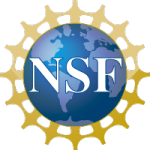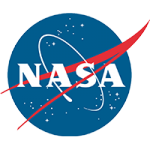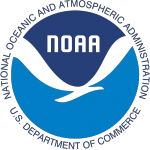The 2009 OCB Summer Workshop was held July 20-23, 2009.
1. Plenary Sessions
The Next U.S. Carbon Cycle Science Plan
Although the research priorities identified in the 1999 U.S. Carbon Cycle Science Plan still remain important, a new set of challenges must be addressed in the coming decade, including the effects of human activities on carbon cycling, the sensitivity of ecosystems to changes in carbon cycling and climate, and the efficacy and environmental consequences of carbon management practices. This session will include overview talks and an open discussion to solicit OCB community feedback on the next version of the U.S. Carbon Cycle Science Plan. Specifically, discussions will focus on:
- What are the new priorities for carbon cycle science over the next decade?
- How can land, ocean and atmospheric scientists more effectively integrate carbon cycle science and provide better decision support?
- How will these priorities affect the OCB community and the way the OCB program is structured?
- How can the OCB community work more effectively with the assessment communities, including the Intergovernmental Panel on Climate Change (IPCC)?
Observing Systems and Time-Series
Ship- and satellite-based ocean observations and time-series form a critical foundation for OCB research. Community planning discussions and input to large-scale national and international planning efforts are essential to ensuring long-term availability of biological, chemical, and ecological data sets that support this research. This session will include scientific highlights and new advances, as well as updates and planning discussions on the following:
- Ocean Observatories Initiative (OOI)
- Biogeochemical time-series
- Repeat Hydrography Program
- Report from 2009 OCB scoping workshop Observing Biogeochemical Cycles at Global Scales with Profiling Floats and Gliders
- OCB contributions to the OceanObs ’09 meeting
The Future of OCB Research in the Southern Ocean
The Southern Ocean represents a key system in the global ocean with a critical role in climate and biogeochemical cycles. There is still a troubling level of uncertainty surrounding the impacts of climate change on circulation, CO2 fluxes, productivity, and ecosystem structure in the Southern Ocean. Building on the 2009 OCB scoping workshop “New Frontiers in Southern Ocean Biogeochemistry and Ecosystem Research,” this session will include both plenary talks and open community discussions on important unresolved air-sea exchange, biogeochemical, and ecological research questions in the Southern Ocean and the efficacy of existing observing programs for addressing these questions.
Ocean Acidification: Frontiers in Understanding Physiological and Ecological Responses
Ocean acidification is a high-priority OCB research topic. Recent developments such as the passage of the Federal Ocean Acidification Research And Monitoring Act and the forthcoming NRC report on ocean acidification make this a critical time for soliciting community feedback on new research directions and activities. This session will include 1) Plenary talks highlighting the role of biology in ocean acidification research to help feed future OCB planning efforts; and 2) An open discussion session to provide updates and solicit community feedback on national ocean acidification documents, meetings, and planning activities.
Implementing Research at the Intersection of Ocean Chemistry and Biology
Two important efforts that advocate for a more integrated observational approach to better address complex feedbacks between ocean chemistry (e.g., micronutrients) and marine ecosystems are currently underway within the OCB-affiliated programs GEOTRACES and SOLAS. The OCB workshop will convene a broad range of expertise that would provide the ideal common ground for a community discussion of these initiatives. This session will include 1-2 overview talks followed by open discussion and possibly an associated breakout session for interested participants. The goals of this session are to: 1) Provide community feedback on these activities; 2) Facilitate scientific and programmatic links among GEOTRACES, SOLAS, IMBER, and OCB; and 3) Motivate the OCB community to formulate detailed research strategies to address these observational challenges.
NACP/OCB Coastal Interim Synthesis Activities
The objective of the coastal synthesis activities is to stimulate the synthesis and publication of recent observational and modeling results on carbon cycle fluxes and processes along the North American continental margin. The coastal synthesis breakout session at last year’s OCB summer workshop proved very fruitful in identifying regional leadership and commencing these activities. This session will include an update and overview of ongoing coastal synthesis activities and an open discussion to solicit feedback and engage community participation.
2. Agenda
July 20, 2009
8:30 Introduction (Scott Doney, WHOI)
8:40 Data Management for OCB Projects (Cyndy Chandler, BCO-DMO)
Session 1. The Next U.S. Carbon Cycle Science Plan
Chair: Chris Sabine (NOAA/PMEL)
9:00 Overview of next CCSP (Chris Sabine, NOAA/PMEL)
9:20 How NACP and the terrestrial community see themselves fitting into the new science plan (Ken Davis, Penn State)
9:40 Social sciences and decision support in the new science plan (Lisa Dilling, U Colorado)
10:30 Panel introduction and opening remarks (Paula Bontempi, Bob Anderson, Galen McKinley, Andy Jacobson, Ken Davis, Lisa Dilling) (Chris Sabine, moderator)
11:00 Open panel discussion (Chris Sabine, moderator)
Session 2. Ocean Acidification: Frontiers in Understanding Physiological and Ecological Responses
Chair: Joan Kleypas (NCAR)
13:30 Global change functional genomics in the study of ocean acidification (Gretchen Hofmann, UCSB)
14:00 Changing nutrient cycles and ocean biology in a high-CO2 world (David Hutchins, USC)
14:30 Questions and open discussion
15:30 Update on U.S. ocean acidification activities (Joan Kleypas, NCAR)
15:35 Addressing ecological thresholds in ocean acidification research (Cisco Werner, Rutgers)
16:05 Open discussion
16:30 Poster session and reception (hors d’oeuvres)
19:00 Public viewing of ocean acidification documentary “A Sea Change” followed by Q&A session; meet filmmakers Barbara Ettinger and Sven Huseby (MBL Lillie Auditorium, Woods Hole Village)
Tuesday July 21, 2009
Session 3. Observing Systems and Time-Series
Chairs: Deborah Bronk (VIMS), Matthew Church (U Hawaii)
8:30 What Repeat Hydrography can tell us about decadal-scale changes in the ocean carbon system (Richard Feely, NOAA/PMEL)
9:00 OOI Design and capabilities to address OCB research (Susan Banahan, Consortium for Ocean Leadership)
9:30 Potential for global-level observations of ocean biogeochemistry with gliders (Oscar Schofield, Rutgers)
10:00 Questions for speakers and open discussion
11:00 OCB Floats and Gliders Scoping Workshop report (new OCB directions/outcomes) (Ken Johnson, MBARI)
11:30 Open discussion
Session 4. NACP/OCB Coastal Interim Synthesis Activities
Chairs: Paula Coble (USF), Simone Alin (NOAA/PMEL)
14:00 Overview of coastal synthesis activities (Coble/Alin)
14:15 Terrestrial-marine-atmospheric linkages in the Gulf of Mexico (Scott Denning) (30-min remote talk followed by 15 minutes for questions and open discussion)
15:00 Coastal carbon budgets along U.S. east coast (Ray Najjar, Penn State) (20-min. talk followed by 10 minutes for questions)
15:30 Coastal carbon budgets in the Arctic and marginal seas (Jeremy Mathis, U AK) (20 min. talk followed by 10 minutes for questions)
16:00 Open discussion
16:30 Poster session
18:30 Conference dinner, Fenno Patio
Wednesday July 22, 2009
Session 5. The Future of OCB Research in the Southern Ocean
Chairs: Kendra Daly (USF), David Ho (U Hawaii)
8:30 Introduction and summary of Southern Ocean Scoping Workshop (new OCB directions/outcomes) (Kendra Daly, USF)
9:15 Overview of Southern Ocean GasEx Project (David Ho, U Hawaii)
9:30 SO GasEx results and satellite techniques for determining Southern Ocean CO2 sources/sinks (Pete Strutton, OSU)
10:00 Open discussion
11:00 Southern Ocean particle fluxes (Phoebe Lam, WHOI)
11:30 Open discussion
Session 6. Implementing Research at the Intersection of Ocean Chemistry and Biology
Chairs: Bob Anderson (LDEO), Kathy Barbeau (SIO)
14:00 GEOTRACES overview talk (Bob Anderson, LDEO)
14:30 Current research in micronutrient-ecosystem interactions (Kathy Barbeau, SIO)
15:00 Open discussion and advocacy presentations: We encourage participants to make brief presentations on relevant measurements, process studies or scientific themes they would like to publicize or advocate.
16:30 Poster session
17:30 Reception with Federal Agency Program Managers for students and postdocs only
Thursday July 23, 2009
8:30 International Program Updates
- IMBER (Mike Roman)
- CARBOOCEAN (Elizabeth Shadwick)
- IOCCP (Kathy Tedesco)
- SOLAS (Wade McGillis)
9:10 Agency updates
- NSF (Don Rice, Dave Garrison, Phil Taylor, Roberta Marinelli)
- NASA (Fred Lipschultz)
- NOAA (Ken Mooney, Joel Levy)
Session 7. The Next U.S. Carbon Cycle Science Plan Revisited
Chair: Chris Sabine (NOAA/PMEL)
- Based on the three overarching questions identified for the new plan, what are the priorities for ocean carbon research in the next decade?
- The new overarching questions place a much stronger emphasis on human dimensions. How will/should this affect the OCB community and how we conduct our science?
- What is an appropriate balance between basic carbon cycle research and research aimed at providing information for policy and decision support?
11:00 Open discussion (continued)
11:50 Closing remarks and wrap-up (Scott Doney, WHOI)
12:00 Adjourn and Lunch
13:30 OCB Scientific Steering Committee (SSC) meeting, Clark 271 (OCB SSC members and agency representatives only)
3. Poster Information
2009 OCB Workshop Poster Abstracts
4. Participant Information
2009 OCB Workshop Participant List
2009 OCB Workshop Registrants
2009 Workshop Sponsors






